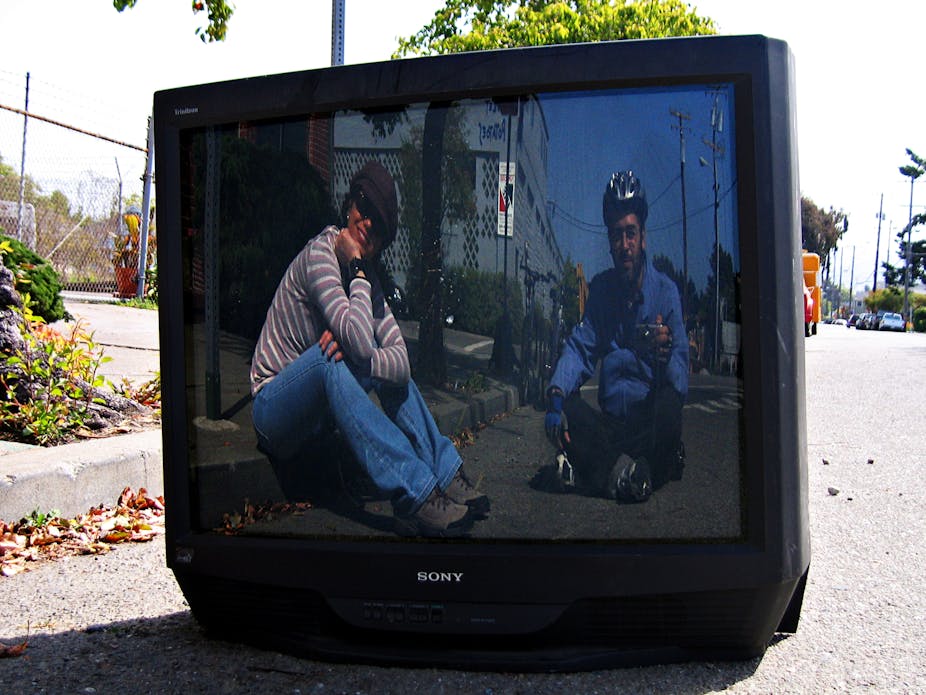On Wednesday a headline on The Conversation declared the death of creativity in television, and the subsequent article screamed J’accuse! in the face of one of the least valued television formats: reality television.
The article, by Carla Rocavert, asserted creativity and reality TV have never gone “head to head” in any discussion on either (at least as it’s revealed in a Google search). Despite this claim, the article goes on to quote the creator of high-profile programs Big Brother and The Voice, Jon de Mol, explicitly articulating his development of new television formats as a creative endeavour.
While de Mol may conceive of his television work in this way, the article denies him any merit an alignment with creativity might impart. Indeed, the author distinguishes an authentic, non-commercial creativity practised by artists – actors, writers, production designers and so forth – from the emergence of creativity as a discourse, a way of structuring and understanding the everyday activities of work and life, in the service of “corporate techno-capitalism”.
For the author, it seems, reality television is no more than a lamentable manifestation of the latter.

I don’t disagree with the identification of the rise of creativity as a managerial, disciplining discourse, and certainly formats such as MasterChef recast the lowly-paid trench work of kitchen infantry in the rosy hue of creative expression; but I do take issue with many other aspects of the article.
The author seems very sure of the character of those who sign up as participants for reality TV shows, describing them as “wannabe stars” and “desparados”, who are part of an enterprise that’s stealing work from professional actors. To quote from the article:
Though it’s tempting to keep rehashing the widespread academic and other evidence of worker exploitation and stolen wages (US$40 million a year by New York based, non-scripted TV companies alone in 2013, according to the Writer’s Guild of America), pitifully cheap production values, links to mass plastic surgery, eating disorders and generally diminishing morality in audiences, “frankenbiting” (where dialogue is deceptively edited to create better stories), metadata surveillance, the impoverishment of public discourses and the fact the that the whole thing is predicated on being real when it is extraordinarily fake – there is another aspect to reality TV that makes it even worse.
The genre is also shrinking creativity.
We learn much about how the author interprets the narratives of reality television, but very little about how audiences do the same (or anything about their moral integrity!). When the author argues that reality television, absent of art, denies “the stories that are really for the people”, I can only think of the ever-present transformation narrative of reality television, where a struggle of some kind, either personal or physical (often both) is followed by triumph and celebration.
Is there a more universal story? Does it have to be created by those who fit the author’s definition of artist in order for it to be meaningful?

Even more curious is the idea that the rise of the reality television format has lead to a decline in creativity in television production more broadly. According to what measure? Much more television is being produced today than ever before, across all genres.
While the article conflates scripted drama, which employs actors and writers of fiction, with creativity, there’s more than enough airtime on the free-to-air channels alone to accommodate multiple formats and genres of television.
And if we must privilege scripted drama, then I see no evidence at all in Australia or the rest of world that reality formats are “killing creativity” or pushing out drama programming. After all, this is the era of HBO and Netflix; in advanced capitalist societies such as Australia, we are no longer bound to the schedule of broadcast television.
If anything, reality television is a response to the changing landscape of television, where the most filmic, high-end drama from around the world is available on demand on a range of platforms and electronic devices. Reality television exploits the live dimension of broadcast television to gather large audiences, to create a common culture, and, yes, to sell to advertisers.
Whatever else reality television may be, it isn’t evidence of the second fall of Rome.
A version of this article appeared on The Peanut Gallery blog.

